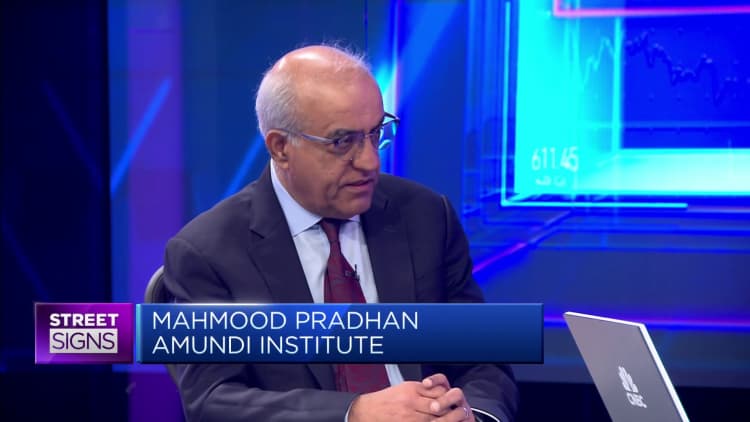BEIJING — Most consumers in China are planning to keep a lid on spending during this year's Singles Day shopping festival, which ends Nov. 11.
That's according to a survey of more than 3,000 consumers in the country by Bain and Company, released Tuesday.
Originally launched by Chinese e-commerce giant Alibaba, Singles Day has expanded from a one-day shopping festival into a multi-week period of shopping promotions across different online platforms in China.
Excitement has waned, and nearly half of consumers surveyed this year also said they were turning to cheaper brands or private label products, the Bain study found. Private label products tend to be cheaper than those from comparable big name brands.
For this year's festival, more than three-fourths of consumers surveyed — or 77% — said they did not plan to increase spending, according to the report.

That's a touch higher than the 76% reported last year, and up significantly from 49% in 2021, the report said.
Slowing economic growth and worries about future income have weighed on consumer spending over the last few years.
"Look at the broader macroeconomy. The consumer sentiment remains a bit lower than where it was pre-Covid," James Yang, partner at Bain, said in a phone interview.
"There is more cost [consciousness] among consumers in where and how they want to spend their money."
This year, "we expect that there is probably going to be more stocking up of consumables," Yang said.
Keeping quiet on total numbers
Last year, both Alibaba and online retail giant JD.com for the first time declined to disclose Singles Day gross merchandise value, an industry measure of sales over time.
Bain estimates that including other platforms, Singles Day e-commerce GMV rose by 3% to 934 billion yuan ($128.25 billion) in 2022.
When factoring in another 181 billion yuan in livestreaming and content-led e-commerce, the total GMV for last year's festival topped 1 trillion yuan ($140 billion), the report said.
For context, those China market figures are still multiples larger than the $35.3 billion that Adobe Analytics said U.S. consumers spent online in 2022 for the local equivalent: the week of Thanksgiving, Black Friday and Cyber Monday.
Livestreaming and posting videos or photos on social media as a way to sell products has taken off in China. Alibaba and JD.com both offer livestreaming functions. Douyin, the Chinese version of TikTok, has become a major platform for people and retailers selling to consumers via livestreams.

"The expectation is that the livestreaming share is going to continue to increase," Bain's Yang said.
He added that different kinds of consumers are also spending differently. Those with higher incomes are generally still spending, while the blue-collar segment of the population are cutting back, he said.
"Middle class, they fluctuate in between," he said. "People are more cautious in how they trade off, what they want to buy."


